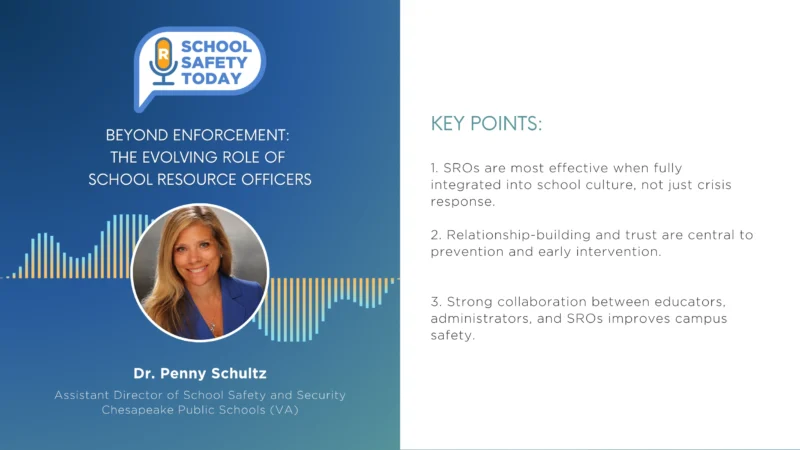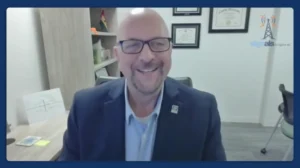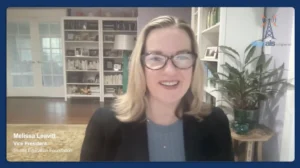Follow us on social media for the latest updates in B2B!
Twitter – @MarketScale
Facebook – facebook.com/marketscale
LinkedIn – linkedin.com/company/marketscale
Here’s Why Online Learning is Sticking Around
Online learning as a modality of teaching and learning has been thrust upon education and can no longer be considered an emerging reality. It is here.
The COVID-19 virus disruption has completely changed the way education operates. Until now, in many organizations across the country and globe, online courses and programs have been managed as a separate entity. The current reality has shifted education and distance learning into an integral part of the education system.
We have come to realize that education is education, regardless of the modality. However, the calm after the initial chaos should bring a concern about understanding the functionality and benefits of each modality for each discipline and how it impacts student outcomes.
Following the initial shock of this rapid transformation, it becomes important for educational leaders to turn to the variables that impact student success in online learning. The voices of instructional designers whose expertise in online learning and course design will be better understood.
The online modality can present in different formats, synchronous and asynchronous, as well as a combination of the two. As instructors make the transition to online, it is an opportunity for them to reassess their syllabi and teaching plans to better meet student needs, and emphasize a more student-centered approach.
The design and quality of the course, how students are guided to connect to the content, to each other, and interactions with the instructor online, are among the many variables that contribute to student success in an online environment. A well-designed online learning course uses applied learning techniques that allow students to gain knowledge, skills and abilities by working on projects or cases studies, virtually, and harnesses the technology to differentiate instruction.
There are many types of online platforms, but it is just that – a platform. How you design a quality online learning experience is the key element. It is not unlike a classroom space. How you set up the chairs and the boards and the visuals in the room sets the stage for learning. To design a high-quality course that truly supports student learning requires a re-thinking and a redesign of a course, or an entire program, which is a significant paradigm shift for many instructors.
An even greater challenge now is that with so many student summer programs and internships evaporating daily, how can students gain internship or fieldwork experience to help prepare for the workplace?
Some educational institutions are offering an online synchronous version of their program. Unless a program has been designed from the beginning as a virtual opportunity, there may be glitches and disappointment.
Students from CUNY, SUNY and other universities have worked with iQ4, an organization that offers four-week, fully online internships, where students work on real-world cases in specific job roles, collaborating in teams and guided by recognized executives from companies such as the Federal Research Bank, American Express, Citizens Bank, Santander Bank, T-Mobile, Bank Mellon and Microsoft…just to name a few.
It is an opportunity for students that brings industry mentors directly to students virtually. iQ4 is a national registered apprenticeship sponsor with the U.S. Department of Labor (DoL).
Internships can be stand-alone or a part of a course or workforce development program. Through simulating on-the-job experiences, student gain knowledge, skills, and abilities both in content and essential professional skills. Students have an opportunity to continue their pathway from education to industry – virtually – and gain an edge into jobs and careers available throughout the country and world; in cyber security and data science.
In the hopefully not-too-distant future, after the transition has been made to distance learning and faculty and students return to a new normal in their courses, educational leadership will be asking how can we best ensure successful student outcomes in distance learning. Is it not the same question we ask about student outcomes in our face-to-face courses? Shouldn’t we be asking how we can best support students as they progress from education to industry? As they prepare to step into the workplace?
There are numerous factors that contribute to student success and a critical factor in helping students succeed – whether online or on-campus – is a sense of connectedness. Being an integral part of something more than yourself, connecting with faculty and mentors, collaborating with fellow students and others in the educational organization, can have a significant positive impact on your well-being. Behavioral outcomes can result from vastly differing degrees of feelings of connection to community. Feeling a part of something greater and interacting with others can keep us healthy. We need to ensure students feel a part of an online community of learners, as elements of a positive online student experience.
Institutions of higher education have been forced to orchestrate efforts throughout their organizations to focus on and support the online student. Traditional infrastructure exists for students in on-campus courses — providing opportunities for students to remain connected with the organization through access to all departments, academic and administrative, student support services, advisement, career centers, and tutoring. Today, we need to orchestrate the same infrastructure to support our students at a distance and give them opportunities to connect to the full array of extra-curricular communities and the total college experience.
For an institution to best service online students, and for online education ventures to be successful, all stakeholders throughout the organization must integrate practices to keep online students connected and, on a trajectory to succeed, as they progress from being a student to becoming a professional.
It is an opportunity for the compartmentalization within the educational organization to be deconstructed and reshaped so that the varied online initiatives throughout the institution can collaborate more effectively. Leaders of educational online learning now are in the position to bring a unique perspective and focus on how to build capacity and appropriately support our online instructors and students. In order for higher education institutions to survive, it is an imperative for them to maintain a vision of the current and future trends of modern education and work to promote student success.
—
Be sure to subscribe to our industry publication for the latest news, videos, and podcasts in the Education & Technology Industry.








